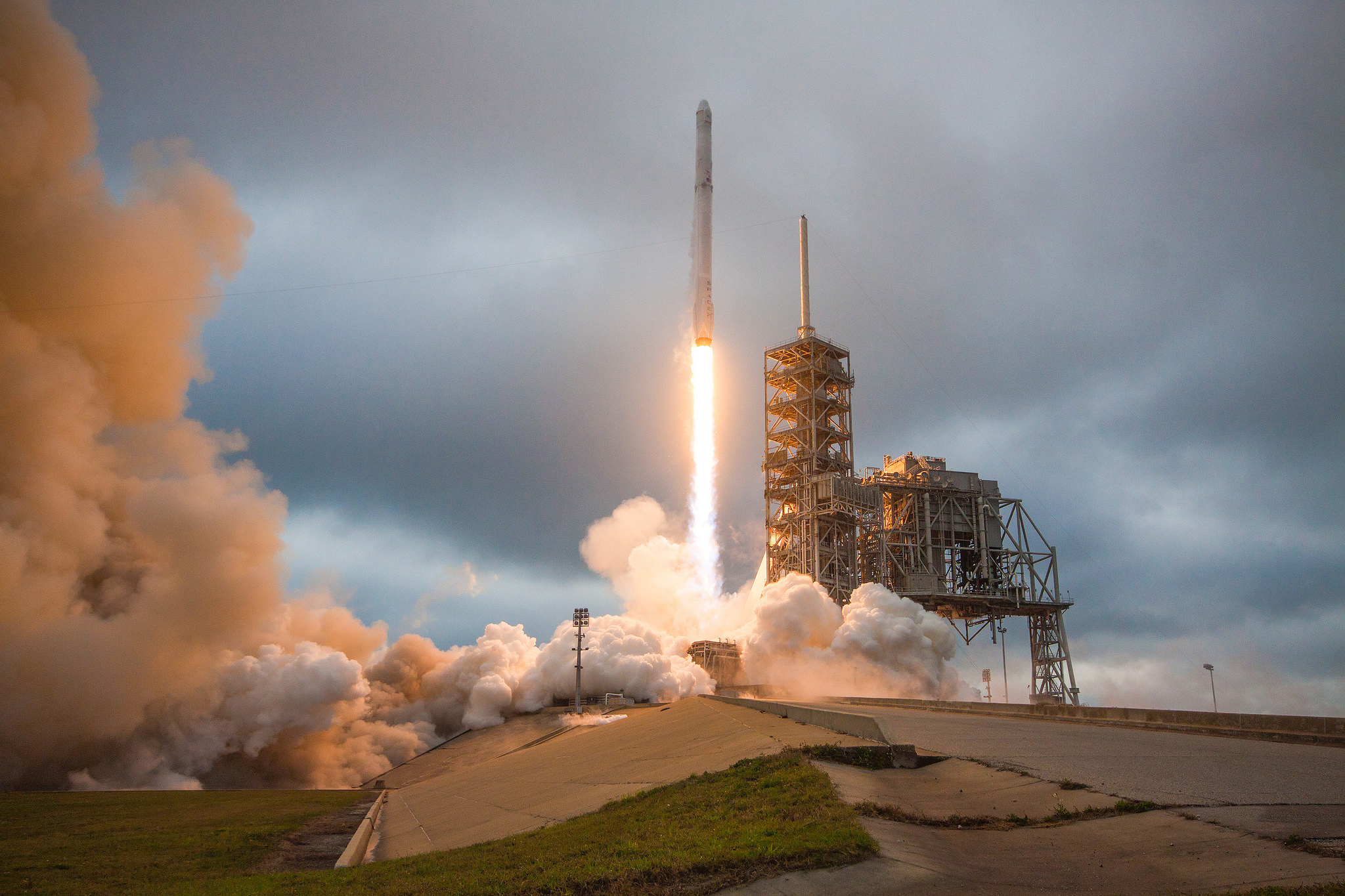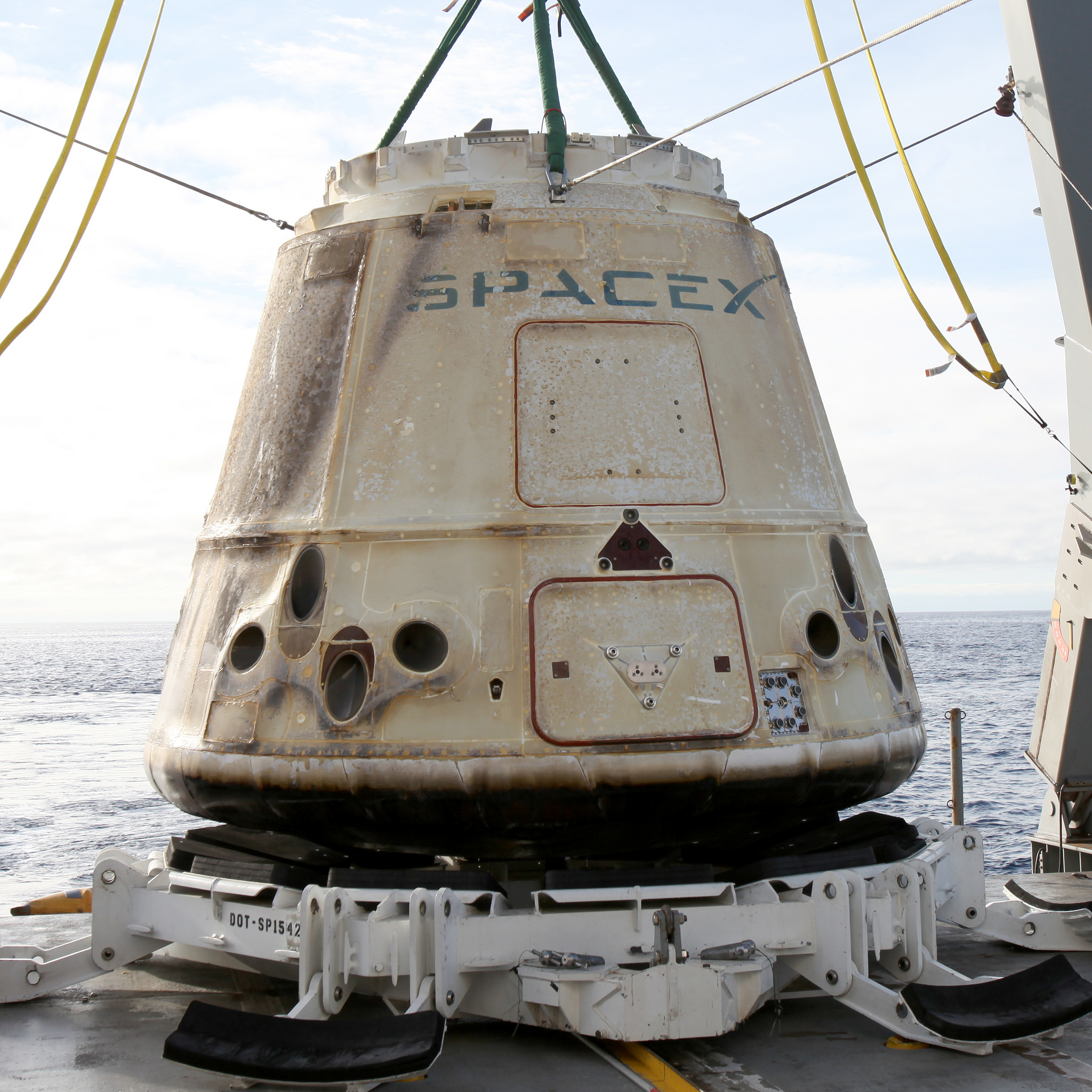Moldy Mouse Chow Delays SpaceX Dragon Launch to Space Station

Breaking space news, the latest updates on rocket launches, skywatching events and more!
You are now subscribed
Your newsletter sign-up was successful
Want to add more newsletters?

Delivered daily
Daily Newsletter
Breaking space news, the latest updates on rocket launches, skywatching events and more!

Once a month
Watch This Space
Sign up to our monthly entertainment newsletter to keep up with all our coverage of the latest sci-fi and space movies, tv shows, games and books.

Once a week
Night Sky This Week
Discover this week's must-see night sky events, moon phases, and stunning astrophotos. Sign up for our skywatching newsletter and explore the universe with us!

Twice a month
Strange New Words
Space.com's Sci-Fi Reader's Club. Read a sci-fi short story every month and join a virtual community of fellow science fiction fans!
SpaceX's next resupply mission to the International Space Station has been pushed back to tomorrow (Dec. 5) due to a rodent problem.
While technicians were getting a mouse experiment ready for loading onto SpaceX's robotic Dragon cargo capsule yesterday (Dec. 3), they found mold on some of the rodents' food bars, NASA officials said in a pre-launch news conference yesterday.
The Dragon had been scheduled to lift off atop a SpaceX Falcon 9 rocket this afternoon (Dec. 4) from Florida's Cape Canaveral Air Force Station. But the food could not be replaced in time to meet that target, NASA officials announced last night. So, mission planners are now aiming for the next opportunity — tomorrow at 1:16 p.m. EST (1816 GMT). [Gallery: Dragon, SpaceX's Private Spacecraft]
You can watch the launch here at Space.com when the time comes, courtesy of NASA. Mother Nature should cooperate; there's just a 10 percent chance that bad weather will scuttle a Wednesday liftoff, launch weather officer Clay Flynn of the U.S. Air Force's 45th Space Wing said during yesterday's briefing.
Forty mice are flying with the affected experiment, which is called Rodent Research-8 (RR-8). The project is designed to help researchers probe the mechanisms behind aging and age-related diseases.
"Responses to spaceflight in humans and model organisms such as mice resemble certain aspects of accelerated aging," RR-8 team members wrote in a study description. "This investigation provides a better understanding of aging-related immune, bone, and muscle disease processes, which may lead to new therapies for use in space and on Earth."
RR-8 is just one of many payloads packed aboard the Dragon for delivery to the orbiting lab. Other scientific gear includes the Robotic Refueling Mission 3, a technology demonstration designed to help pave the way for in-space satellite servicing, and the Global Ecosystem Dynamics Investigation, an instrument that will gauge forest-canopy height around the world.
Breaking space news, the latest updates on rocket launches, skywatching events and more!
Dragon will also carry lots of food, spare parts and other supplies up to the station. The capsule is loaded with more than 5,600 lbs. (2,540 kilograms) of stuff in total, NASA officials said.
This Dragon has one other International Space Station (ISS) mission under its belt: it launched toward the orbiting lab back in February 2017. That was the 10th ISS resupply flight SpaceX performed under its contract with NASA. Wednesday's launch will initiate mission number 16.
SpaceX places a high priority on such re-flights, viewing rapid and repeated reuse as a key breakthrough that will slash the cost of spaceflight. The company has re-flown Falcon 9 first stages many times, and made history yesterday when it launched a rocket with a first stage that had already flown two orbital missions. (The Falcon 9 that will send Dragon skyward tomorrow is brand-new, however.)
The Dragon will take two days to reach the ISS, and it will stay attached to the orbiting lab for more than a month. The capsule is scheduled to return to Earth for a parachute-aided ocean splashdown in mid-January.
The Dragon delay doesn't leave today launch-free. An Arianespace Ariane 5 rocket is scheduled to launch a communications satellite and a weather satellite from Kourou, French Guiana, at 3:37 p.m. EST (2037 GMT). You can watch that here at Space.com as well.
Mike Wall's book about the search for alien life, "Out There" (Grand Central Publishing, 2018; illustrated by Karl Tate) is out now. Follow him on Twitter @michaeldwall. Follow us @Spacedotcom or Facebook. Originally published on Space.com.

Michael Wall is a Senior Space Writer with Space.com and joined the team in 2010. He primarily covers exoplanets, spaceflight and military space, but has been known to dabble in the space art beat. His book about the search for alien life, "Out There," was published on Nov. 13, 2018. Before becoming a science writer, Michael worked as a herpetologist and wildlife biologist. He has a Ph.D. in evolutionary biology from the University of Sydney, Australia, a bachelor's degree from the University of Arizona, and a graduate certificate in science writing from the University of California, Santa Cruz. To find out what his latest project is, you can follow Michael on Twitter.

